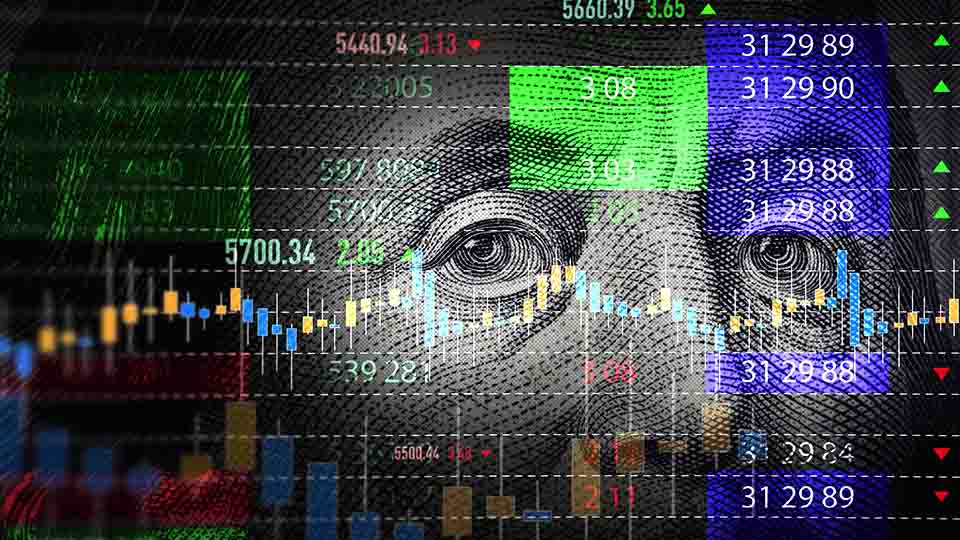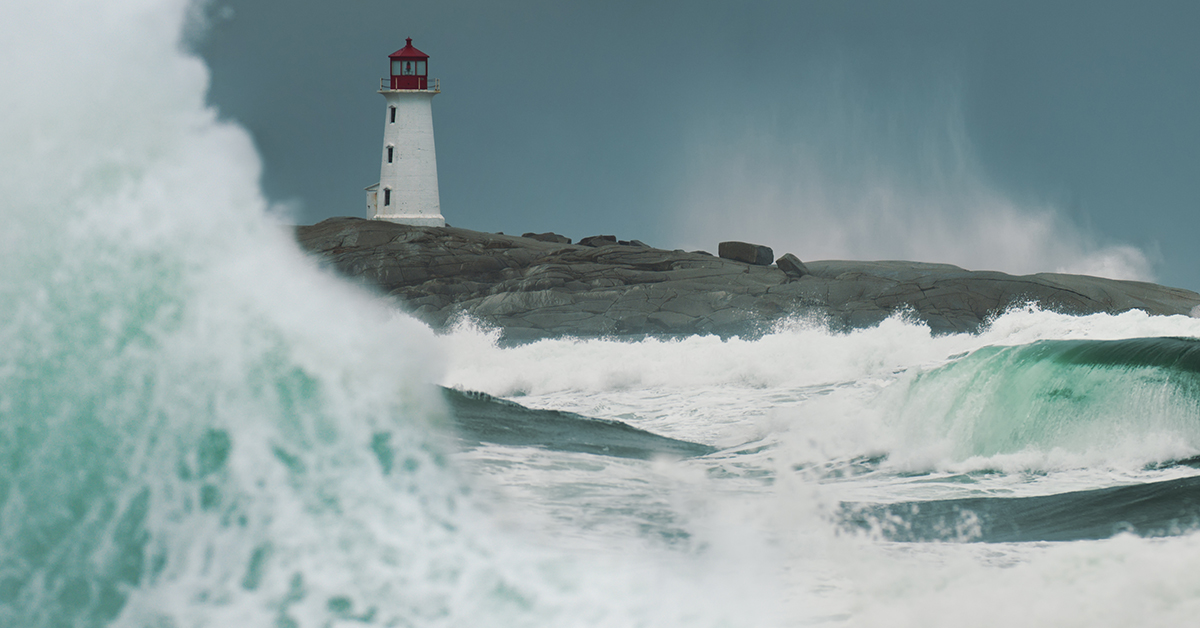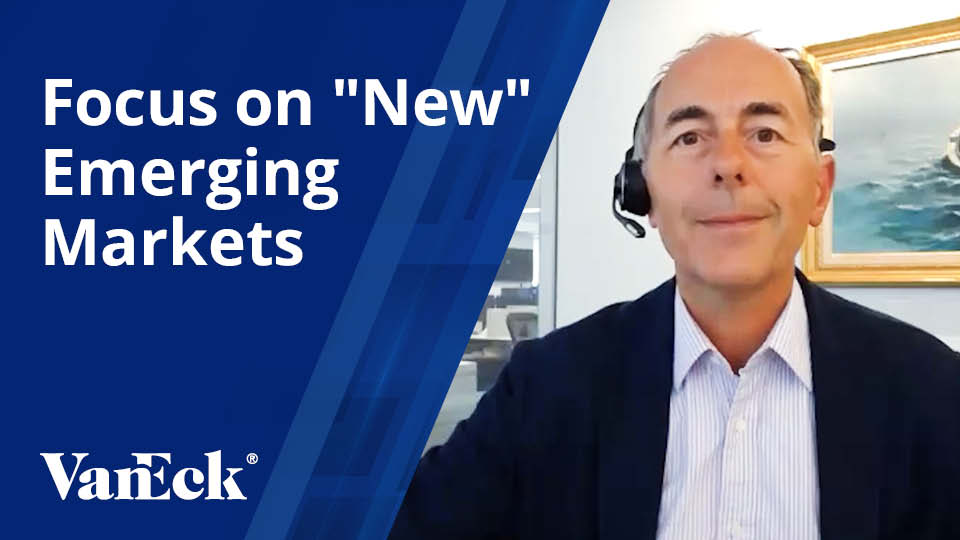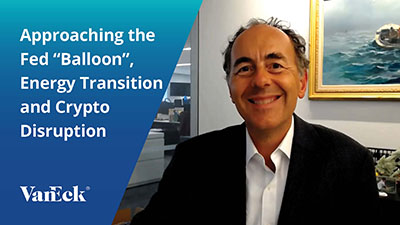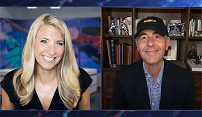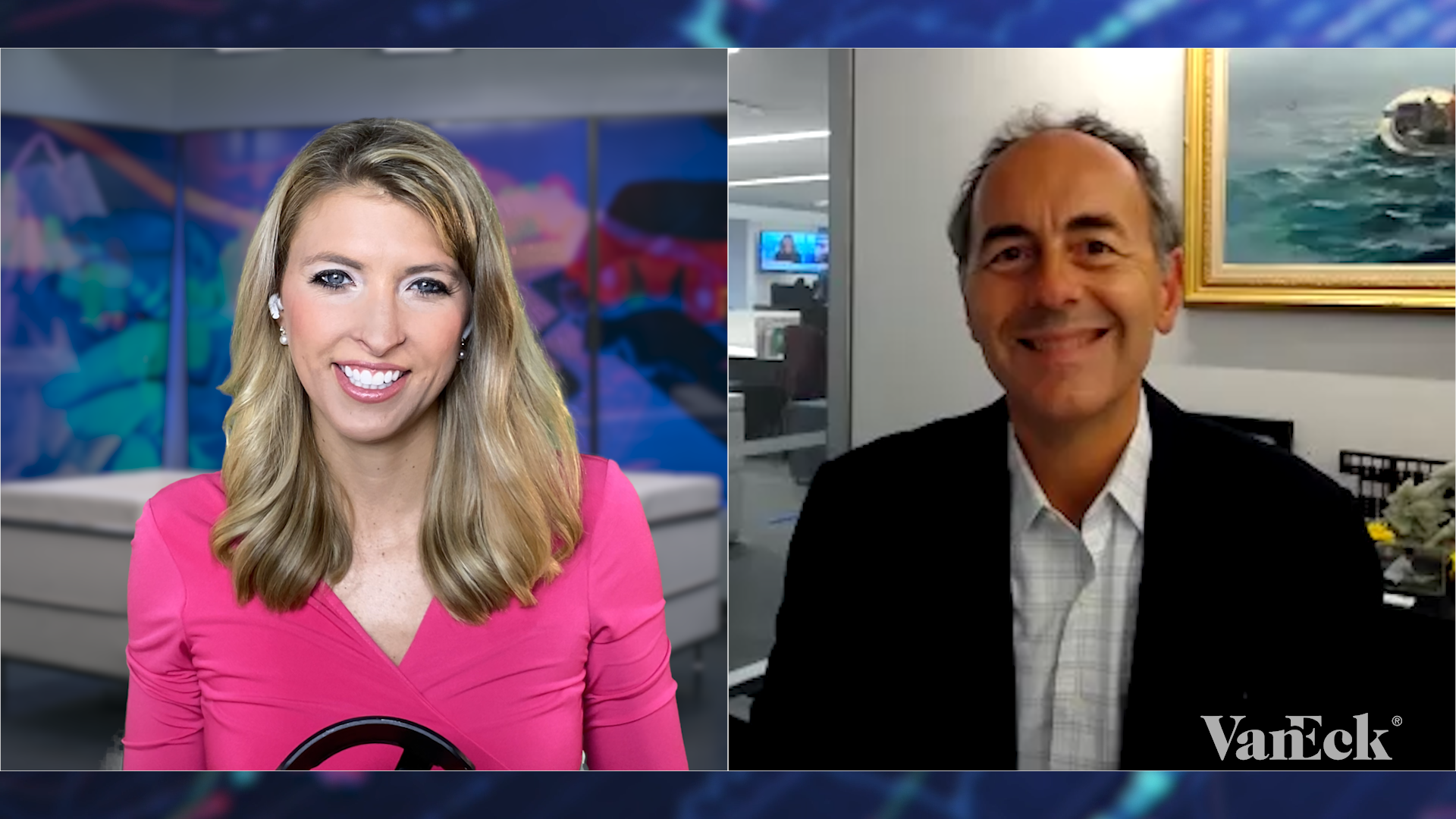Uncertainty Is Down: How the Recovery Takes Shape
02 June 2020
Watch Time 7:00
Jenna Dagenhart: Hello and welcome to Asset TV. Joining us now with his quarterly outlook is Jan van Eck, CEO of VanEck. Jan, some people have said that the stock market is way overvalued after the rebound from the March lows. Do you think investors should be worried about their portfolios right now?
Jan van Eck: Actually, I think investors should be very comfortable if they're maintaining their strategic allocations to stocks and bonds. There are some very negative scenarios out there, and I really think that has been taken off the table. And let me explain why.
I think there's this factor in markets. They hate uncertainty. And in March, we just had so much uncertainty, specifically about whether we could flatten the curve or not. Since it's very clear that country after country has been able to flatten the curve—you can judge how quickly—we know that that has happened, so the uncertainty has gone from the market. We really have a lot of visibility as to the recovery from this recession.
I would just add quickly, we know it's a recession with very high certainty, because oil and copper prices did not go below their 2015 lows. That's when China basically had a mini recession. So, I think worrying about a depression is really an unlikely scenario right now.
Jenna Dagenhart: If you're calling it a recession, what will the dimensions of that be, and what kind of recovery will we see? I know [Federal Reserve Chairman Jerome] Powell said recently in an interview with CBS 60 Minutes that he believes the economy will recover, but it could take until the end of next year.
Jan van Eck: Well, we know there's so much damage being done because of the unemployment. So again, I would say what the market consensus is, is pretty much what we see here at VanEck. Meaning, there are some sectors—the work at home sectors—that companies are actually not even seeing recession conditions at all, like esports and Amazon. Then there are other areas like banks, which are very much affected, because there's going to be a lot of defaults. Then obviously the energy sector as well has been hit very hard from this.
We know also from the China data, pretty much it will take a while before people start doing certain activities, as long as there's no vaccine. In China, for example, subway traffic during the work week is only 60% of normal, of last year. And weekend subway traffic, which you have to assume relates to entertainment and all that, is still at 50% of last year's level. If China is two months ahead of us, then you know that we're seeing a very uneven recovery, and it'll take a long time to heal from that. But the visibility, if we had lack of visibility in March, we have visibility now, which is why I'm just more comfortable sticking with portfolio allocations.
Jenna Dagenhart: And some people are saying that gold could go above $2,000 [per ounce]. What do you think about that?
Jan van Eck: Merrill Lynch and Morgan Stanley both have said that. The fundamental reason to own gold is because real interest rates are negative, and that's what gold kind of competes with, so that's number one. And number two, the reason people like gold is, if we all agree that the recession will be long, how much more would the central bank have to stimulate to keep things going? And the more they stimulate the better for gold.
The one point I would make is that $1,800 an ounce is a really big technical hurdle for gold. It couldn't get above there three times, 10 years ago. So, I'm not a technician. The fundamental reason to own gold is what I just said. But I think as long as gold is below $1,800, which it is right now, then you should be at your maximum gold allocation, which for some people is 5% to 10%. It's not too late to own gold. Let me put it that way. If it breaks through $2,000 and starts really rallying, then I would start taking some gold profits off the table.
Jenna Dagenhart: And with the Fed's (Federal Reserve’s) aggressive bond buying programs and stimulus, do you think that there are opportunities within fixed income?
Jan van Eck: Yeah, I think it's across the spectrum. Again, I'm a little less cautious than some commentators. Investment grade is fine, but there's going to be a lot of corporate issuance in some of those battered sectors. Municipalities as well are going to have to raise a lot of money. The Fed has said, "Hey, we'll be out there buying, directly or indirectly," so it's hard for me to see a big spike in interest rates.
You know I like to always talk about China a little bit as well. I'll point out that actually there, interest rates overall have fallen, but what's different is that interest rates with companies have fallen as well. Whereas here, we know that high yield interest rates have spiked a lot, and they're still at elevated levels. So, if things are easier in China almost in a way than they are here, again that should lead to a global recovery from this recession.
Jenna Dagenhart: And Jan, finally, any main market drivers that you'd like to highlight? Any other thoughts on the coronavirus pandemic and how it's impacting the markets?
Jan van Eck: Well, I mean, again, the super high growth sectors are kind of fun to watch. It's amazing how growth stocks have outperformed value again, this year. It's just remarkable, and it shows to me that the market is relatively intelligent, in terms of pricing what this recession will look like. The one wild card is obviously the vaccine. I would say, for the record, I think what the market is pricing in is that we will have a vaccine available by the end of this year. How widely available, we don't know. If it happens a lot faster than that, that will be a positive surprise and obviously a negative surprise if we don't get that. And that will just mean a lot more bankruptcies and credit destruction, I think, for the sectors that need people to get back to work and traveling.
Jenna Dagenhart: Well, Jan, thank you so much for your time and your insights. Really great to have you.
Jan van Eck: Good to see you again, Jenna.
Jenna Dagenhart: And thank you for watching, and that was Jan van Eck, CEO of VanEck. To receive regular updates from VanEck's experts, please visit vaneck.com/subscribe. I'm Jenna Dagenhart with Asset TV.
